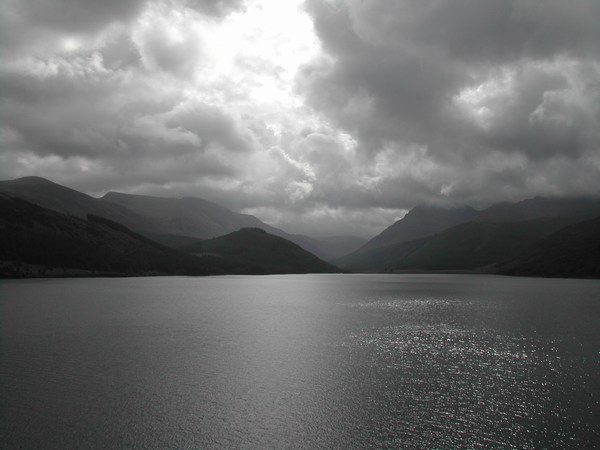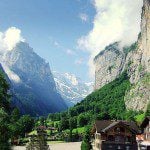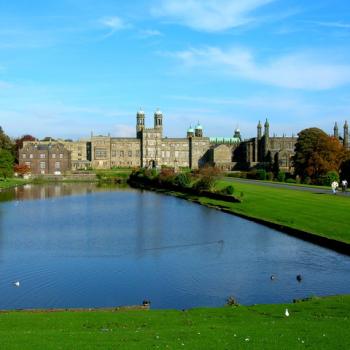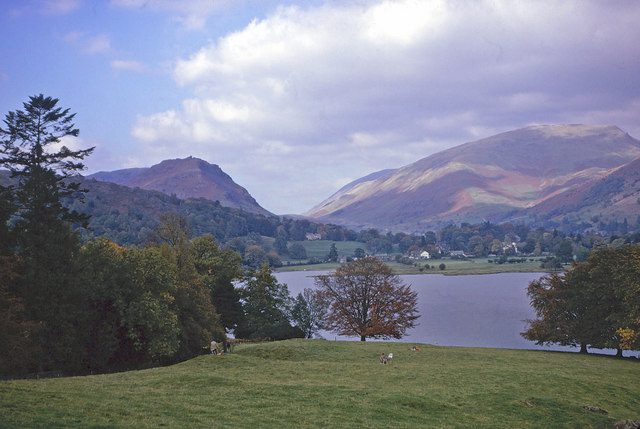
Our group headed up to the Lake District today, devoting much of our time to William Wordsworth (1770-1850) and to his wife, Mary, and his sister, Dorothy, who were both very important elements of his life and his creativity. It might seem odd that a tour focused on Latter-day Saint history should devote the better part of a day to the greatest of the English Romantic poets, but it makes entire sense to me. For one thing, Grasmere and the Lake District are very beautiful. (We also enjoyed a half-hour boat cruise on Lake Windermere, in the best weather that I can recall having in the area, a beautiful, sunny day at just the right temperature.) For another reason, Wordsworth’s thinking seems to me (and not to me alone) to resonate in a particularly wonderful way with central concepts of the Restoration. So far as I’m aware, his only documented reference to the topic is an inquiry, addressed to his American publisher, about the “wretched” sect that his niece had joined. (His publisher wrote back to say that he knew very little about “Mormonism,” but that Joseph Smith was an imposter.) Had he understood our doctrine, though, I think that he might have found it less “wretched” than he imagined it to be. I’ll attempt to explain why, in at least one respect.
First, I cite a poem of his called “The Tables Turned,” in which he expresses his life-long deep love for the natural world. (It’s not by chance or mere whim that he chose to live in the Lake District, with its hills and mountains and waterfalls and lakes, above anywhere else, and to be buried at St. Oswald’s church in Grasmere rather than in Westminster Abbey.). I apologize for the fact that I’ve been unable to preserve the formatting and the stanza-structure of the poems that I cite here, but they should still be clear enough to understand:. Here’s “The Tables Turned”:
Up! up! my Friend, and quit your books;Or surely you’ll grow double:Up! up! my Friend, and clear your looks;Why all this toil and trouble?The sun above the mountain’s head,A freshening lustre mellowThrough all the long green fields has spread,His first sweet evening yellow.Books! ’tis a dull and endless strife:Come, hear the woodland linnet,How sweet his music! on my life,There’s more of wisdom in it.And hark! how blithe the throstle sings!He, too, is no mean preacher:Come forth into the light of things,Let Nature be your teacher.She has a world of ready wealth,Our minds and hearts to bless—Spontaneous wisdom breathed by health,Truth breathed by cheerfulness.One impulse from a vernal woodMay teach you more of man,Of moral evil and of good,Than all the sages can.Sweet is the lore which Nature brings;Our meddling intellectMis-shapes the beauteous forms of things:—We murder to dissect.Enough of Science and of Art;Close up those barren leaves;Come forth, and bring with you a heartThat watches and receives.
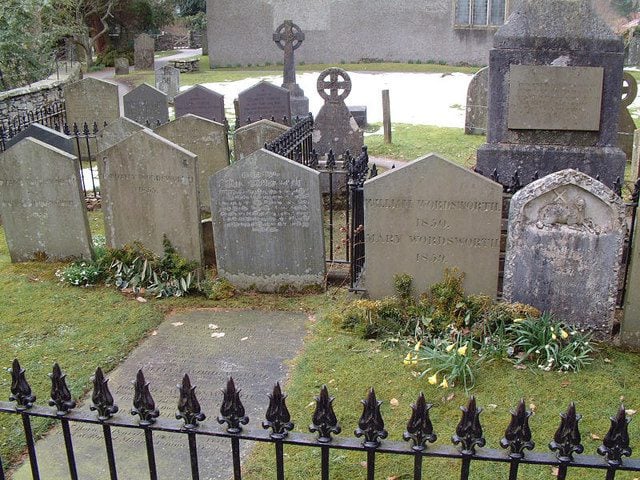
But the mundane world about us dulls our sensibilities; we become, very literally, disenchanted. We forget that we are pilgrims and strangers here and we begin to settle in, losing our divine homesickness, our yearning for a better reality. Here is the entirety of his “The World is Too Much with Us”:
The world is too much with us; late and soon,Getting and spending, we lay waste our powers;—Little we see in Nature that is ours;We have given our hearts away, a sordid boon!This Sea that bares her bosom to the moon;The winds that will be howling at all hours,And are up-gathered now like sleeping flowers;For this, for everything, we are out of tune;It moves us not. Great God! I’d rather beA Pagan suckled in a creed outworn;So might I, standing on this pleasant lea,Have glimpses that would make me less forlorn;Have sight of Proteus rising from the sea;Or hear old Triton blow his wreathèd horn.
The Jesuit poet Gerard Manley Hopkins (1844-1889) expressed a related sentiment in “God’s Grandeur”:
The world is charged with the grandeur of God.It will flame out, like shining from shook foil;It gathers to a greatness, like the ooze of oilCrushed. Why do men then now not reck his rod?Generations have trod, have trod, have trod;And all is seared with trade; bleared, smeared with toil;And wears man’s smudge and shares man’s smell: the soilIs bare now, nor can foot feel, being shod.And for all this, nature is never spent;There lives the dearest freshness deep down things;And though the last lights off the black West wentOh, morning, at the brown brink eastward, springs —Because the Holy Ghost over the bentWorld broods with warm breast and with ah! bright wings.
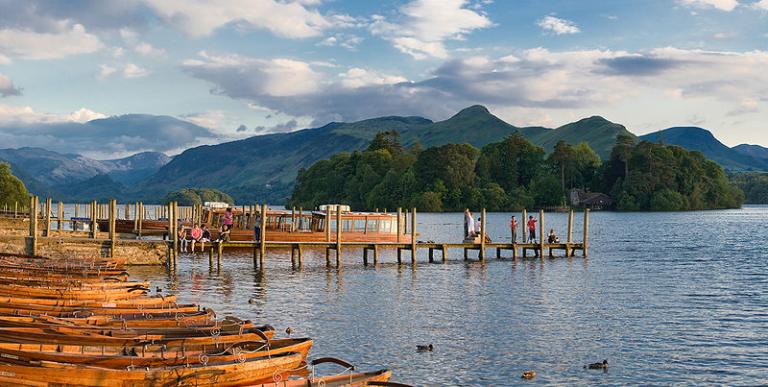
Wordsworth’s passion for nature, which he describes as having been rather direct and raw and even unreflective during his early years, gradually settled later on into a calmer affection. He recognized that there was loss in the passage of time, but he also thought that there was some gain, as well. He expresses this throughout his “Lines Composed a Few Miles above Tintern Abbey, On Revisiting the Banks of the Wye during a Tour. July 13, 1798,” from which I cite a passage here. Behind nature, he discerns something much more powerful, something divine:
For nature then(The coarser pleasures of my boyish daysAnd their glad animal movements all gone by)To me was all in all.—I cannot paintWhat then I was. The sounding cataractHaunted me like a passion: the tall rock,The mountain, and the deep and gloomy wood,Their colours and their forms, were then to meAn appetite; a feeling and a love,That had no need of a remoter charm,By thought supplied, nor any interestUnborrowed from the eye.—That time is past,And all its aching joys are now no more,And all its dizzy raptures. Not for thisFaint I, nor mourn nor murmur; other giftsHave followed; for such loss, I would believe,Abundant recompense. For I have learnedTo look on nature, not as in the hourOf thoughtless youth; but hearing oftentimesThe still sad music of humanity,Nor harsh nor grating, though of ample powerTo chasten and subdue.—And I have feltA presence that disturbs me with the joyOf elevated thoughts; a sense sublimeOf something far more deeply interfused,Whose dwelling is the light of setting suns,And the round ocean and the living air,And the blue sky, and in the mind of man:A motion and a spirit, that impelsAll thinking things, all objects of all thought,And rolls through all things. Therefore am I stillA lover of the meadows and the woodsAnd mountains; and of all that we beholdFrom this green earth . . .
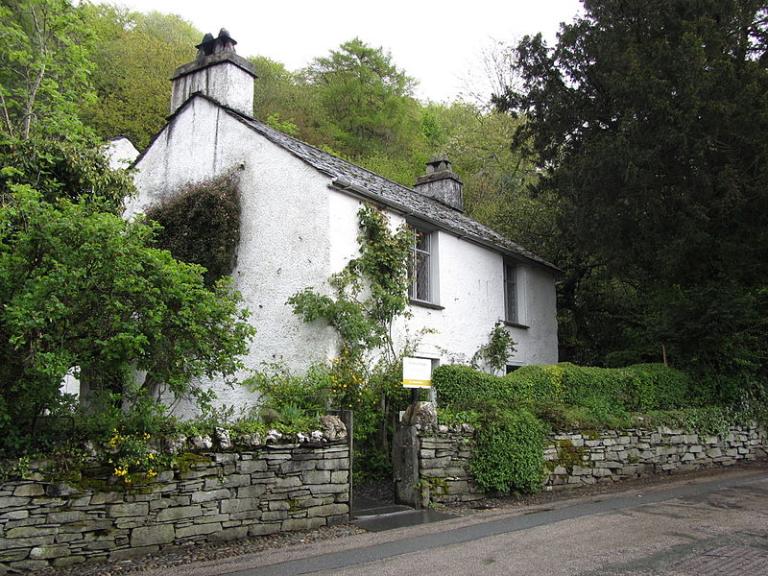
Through nature, though, Wordsworth also senses echoes of the still-greater glory of another world, the pre-existent world from which we all come. But he senses them ever more faintly because, with the passage of time, we’re distracted and our perception of them dims. Here are some lines from his “Ode: Intimations of Immortality from Recollections of Early Childhood.” A few of them will be very familiar to some Latter-day Saints:
The child is father of the man;
And I could wish my days to be
Bound each to each by natural piety.
There was a time when meadow, grove, and stream,
The earth, and every common sight,
To me did seem
Apparelled in celestial light,
The glory and the freshness of a dream.
It is not now as it hath been of yore;—
Turn wheresoe’er I may,
By night or day.
The things which I have seen I now can see no more.The Rainbow comes and goes,
And lovely is the Rose,
The Moon doth with delight
Look round her when the heavens are bare,
Waters on a starry night
Are beautiful and fair;
The sunshine is a glorious birth;
But yet I know, where’er I go,
That there hath past away a glory from the earth. . . .Whither is fled the visionary gleam?
Where is it now, the glory and the dream?Our birth is but a sleep and a forgetting:
The Soul that rises with us, our life’s Star,
Hath had elsewhere its setting,
And cometh from afar:
Not in entire forgetfulness,
And not in utter nakedness,
But trailing clouds of glory do we come
From God, who is our home:
Heaven lies about us in our infancy!
Shades of the prison-house begin to close
Upon the growing Boy,
But he beholds the light, and whence it flows,
He sees it in his joy;
The Youth, who daily farther from the east
Must travel, still is Nature’s Priest,
And by the vision splendid
Is on his way attended;
At length the Man perceives it die away,
And fade into the light of common day.Earth fills her lap with pleasures of her own;
Yearnings she hath in her own natural kind,
And, even with something of a Mother’s mind,
And no unworthy aim,
The homely Nurse doth all she can
To make her Foster-child, her Inmate Man,
Forget the glories he hath known,
And that imperial palace whence he came.


